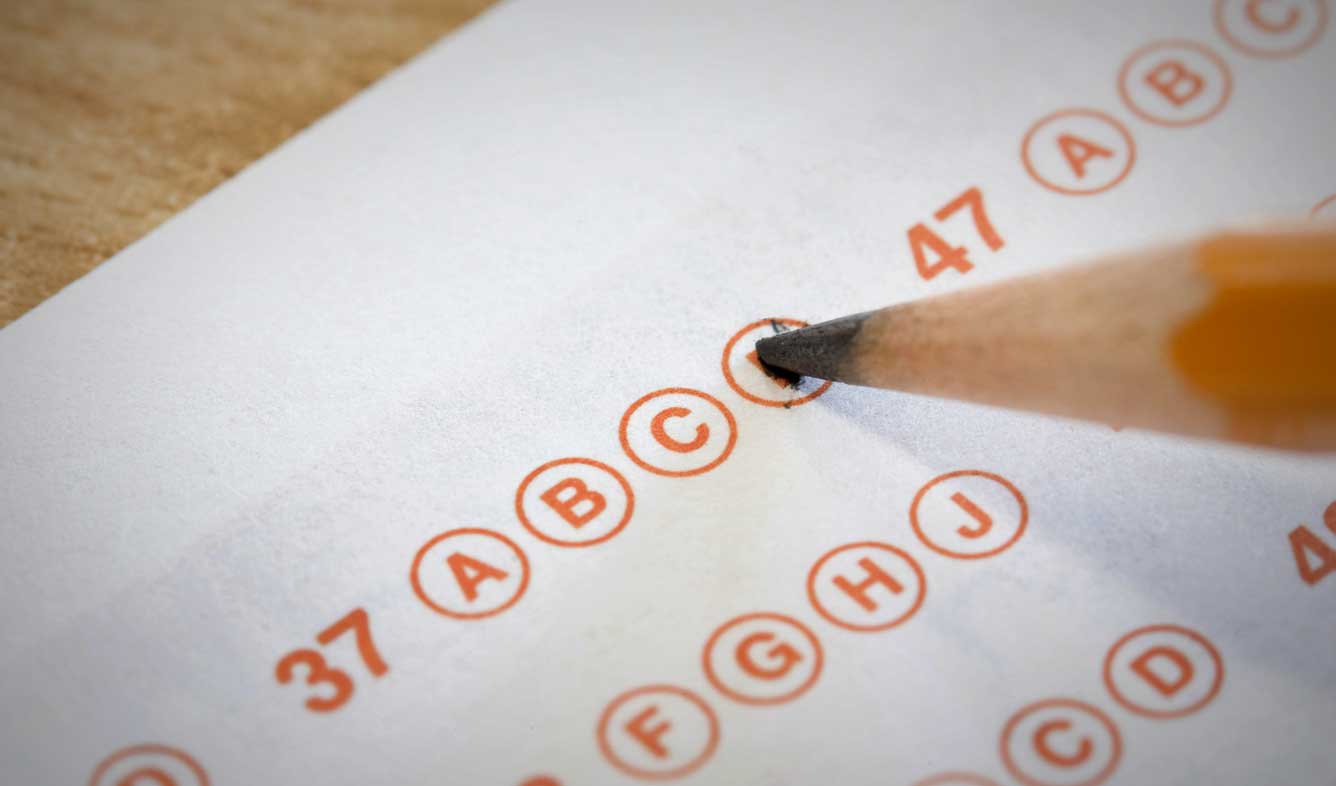How can I improve my TOEFL, IELTS, TOEIC, EIKEN, or other English test scores?

I get a lot of questions about how to prepare for standardized English tests like the TOEFL, TOEIC, IELTS, and so on.
In the past, I've avoided answering these questions for a few reasons:
- I don't like standardized tests very much. I don't think that they do a good job of measuring someone' English-speaking skill.
- I haven't spent a lot of time teaching for tests, so I don't think that I have much specialized skill.
However, since a lot of PhraseMix readers want to know my opinions about how to prepare for tests, I thought I'd share what I know.
Learn the test, not English
Most programs that prepare students to take standardized have one thing in common: they "teach to the test". "Teaching to the test" means specifically practicing the kinds of questions that are on that test.
For example, the TOEFL test has a Reading section. In that section, you read a short page article and then answer multiple-choice questions about it. A TOEFL teacher that is "teaching to the test" will not ask you to read longer articles or books. They will not ask you to read an essay and then write an essay about it. They will have you practice exactly what you will do on the test: read a short article and answer multiple-choice questions.
There are certain tricks that you should learn for taking standardized tests. Here are some examples:
- For some tests, you can gain an advantage by guessing if you don't know the correct answer. For others, you will be penalized if you guess wrong. Find out how your test is scored.
- For reading sections, it's usually a good idea to read the questions first so that you know what to look for in the passage.
- If you're taking a test that allows you to skip questions, skip the difficult ones and come back to them at the end if you have time.
- For tests with a writing section, find out how your writing will be scored. Some tests have strange requirements.
Widen your vocabulary
What's better?
- To know fewer words, but to know them all very well?
- To have a little knowledge about a wider range of words?
When it comes to speaking English in your everyday life, I recommend #1. Having better command of the most common and important English words will make you a better English speaker. That's why a lot of PhraseMix lessons teach phrases that are just combinations of simple words like "go", "of", "the", "it", and so on.
But for standardized tests, it's a different story. Most standardized tests measure the breadth of your vocabulary. In other words, they measure how many words you know. They do this either with questions specifically about vocabulary, or by having you read Engilsh that uses difficult academic words.
So one way to improve your test score is to study lists of academic vocabulary in few weeks before the test. You can find lots of academic vocabulary lists on different websites across the Internet. Just search for something like "TOEFL vocabulary" to find lists of words. Turn those words into flash cards and study them every day.
This is not the most effective way to learn vocabulary in the long run. You'll probably forget a lot of the words that you study this way. But for the test, what's most important is being able to recognize as many words as possible.
For example, imagine that you've studied the word "adversity" in a list of vocabulary. You don't really know what it means, but you kind of remember that "adversity" is something bad. That might be enough information to help you to answer this essay question:
Do you agree or disagree with the following statement? "People only show their true character when they are faced with adversity."
Study for the test, then get back to learning English
Test-taking is a specific skill. Studying for the IELTS, the TOEIC, or the TOEFL might improve your English ability a little, but mostly it will just help you to get a higher test score.
Sometimes you may be required to take a test to get into school, to get a job, or for some other reason. If that's the case, focus on preparing for the test.
If you might need to take a standardized test in the future but you don't need to do it soon, forget about the test for now. Focus on improving your English as usual using the techniques that PhraseMix recommends. In the long term, you're better off becoming a better English speaker rather than a good test taker!
So what do you think? Are these useful tips? Do you have any other techniques that have helped you get a high score on a standardized English test? Share them in the comments!
Print this Article




